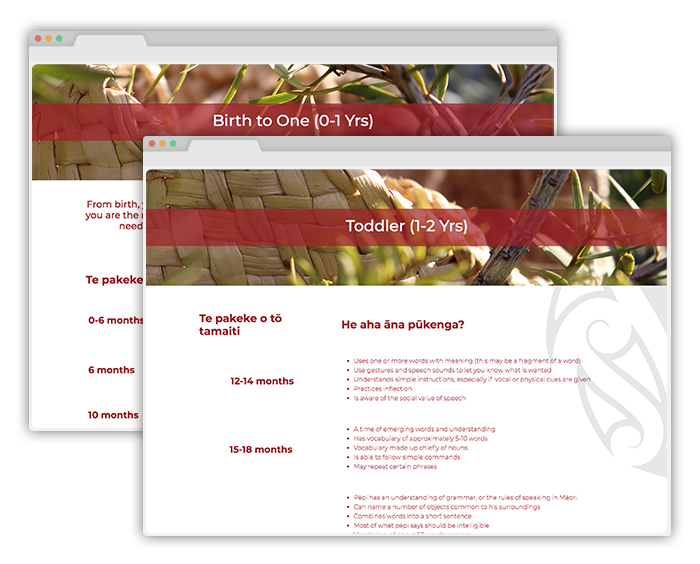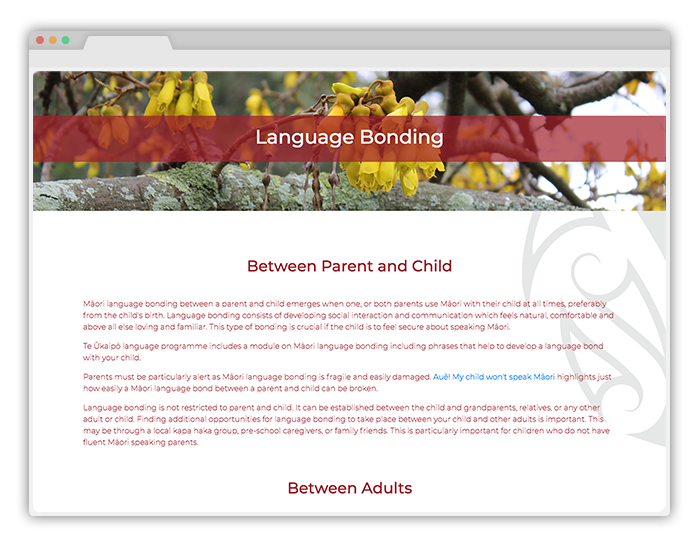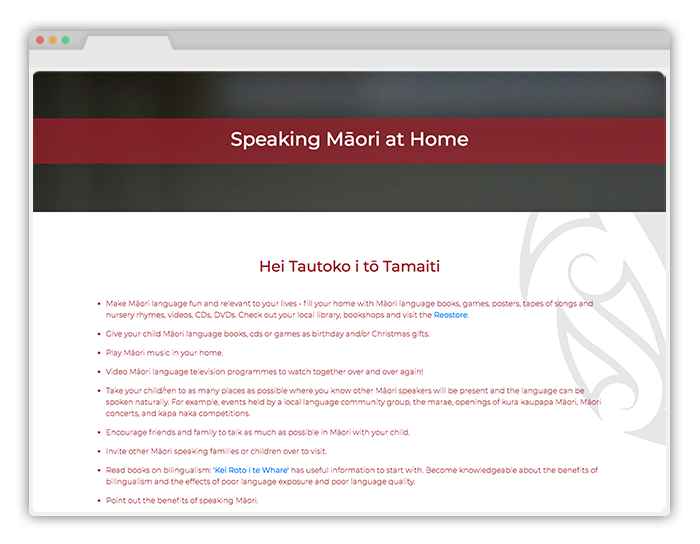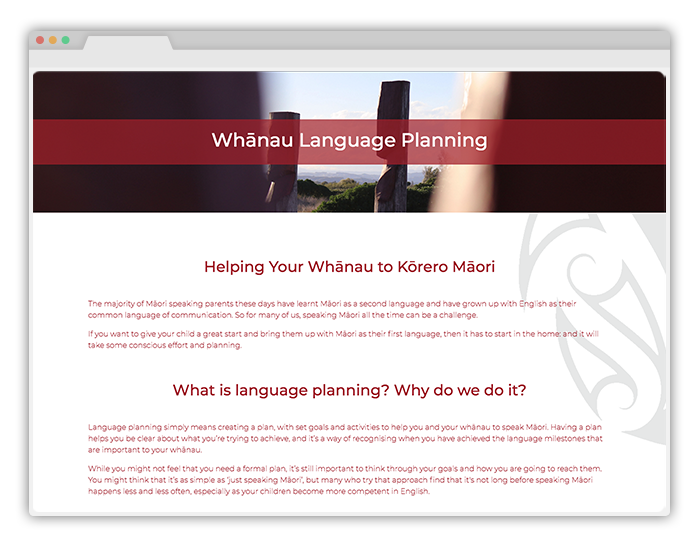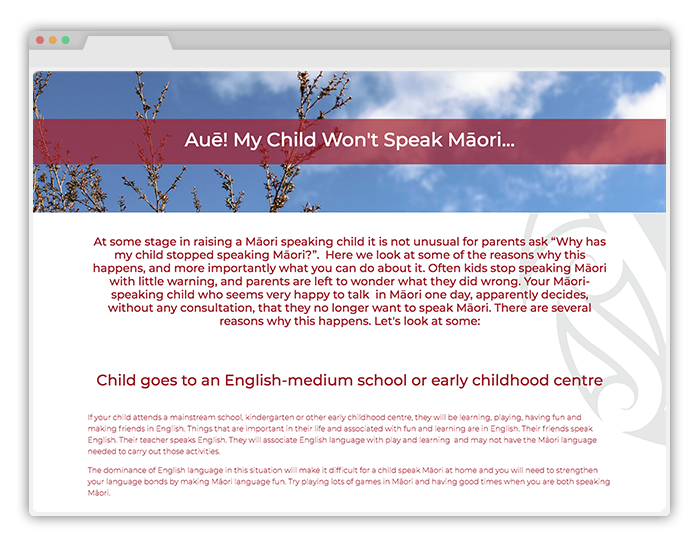Helpful Information (Ngā Pārongo Āwhina)
This section provides you with information, ideas and strategies to help you stay focused and speaking te reo Māori in your home. And, if you haven't already done so, have a look at our online learning programme. It takes only 10 minutes or so to complete each section and it focuses on providing language for you and your child/ren.
Stages and Ages
There are some predictable stages to the way most children learn to speak a language. However, there can be many reasons for a young child not to meet these language milestones. So, if you have concerns about your child's learning or their developmental stages, talk to Plunket or your doctor.
The following language development stages are based on research, but are not a complete or definitive guide. This information is presented to help you understand and grow your children's Māori language. Please note too, that there may also be a short delay in some of these milestones for children who are learning two or more languages at once, such as Māori and English.
Children's language grows very quickly in their first few years. Here we look at some of the characteristics of language according to age.
Tips for Parents
Maintaining a Māori language speaking home can be a real challenge, particularly if you haven't yet developed a support network of other whānau members and friends who have also decided to use Māori as the natural language of choice in their homes and with your family. Having a strong Māori language bond in place early and some good strategies will be helpful to get you through the ups and downs.
Speaking Māori at Home
Use the following strategies to support your children in speaking Māori at home. These strategies can be used by all parents and caregivers - it doesn't matter whether or not you are a Māori speaker. Check them out here.
Whānau Language Planning
Language planning simply means creating a plan, with set goals and activities to help you and your whānau to speak Māori. Having a plan helps you be clear about what you’re trying to achieve, and it’s a way of recognising when you have achieved the language milestones that are important to your whānau.
While you might not feel that you need a formal plan, it’s still important to think through your goals and how you are going to reach them. You might think that it’s as simple as ‘just speaking Māori’, but many who try that approach find that it's not long before speaking Māori happens less and less often, especially as your children become more competent in English. See more here.
Auē! My Child Won't Speak Māori...
At some stage in raising a Māori speaking child it is not unusual for parents ask “Why has my child stopped speaking Māori?”. Here we look at some of the reasons why this happens, and more importantly what you can do about it.
Often kids stop speaking Māori with little warning, and parents are left to wonder what they did wrong. Your Māori-speaking child who seems very happy to talk in Māori one day, apparently decides, without any consultation, that they no longer want to speak Māori. There are several reasons why this happens. Check these reasons here.
